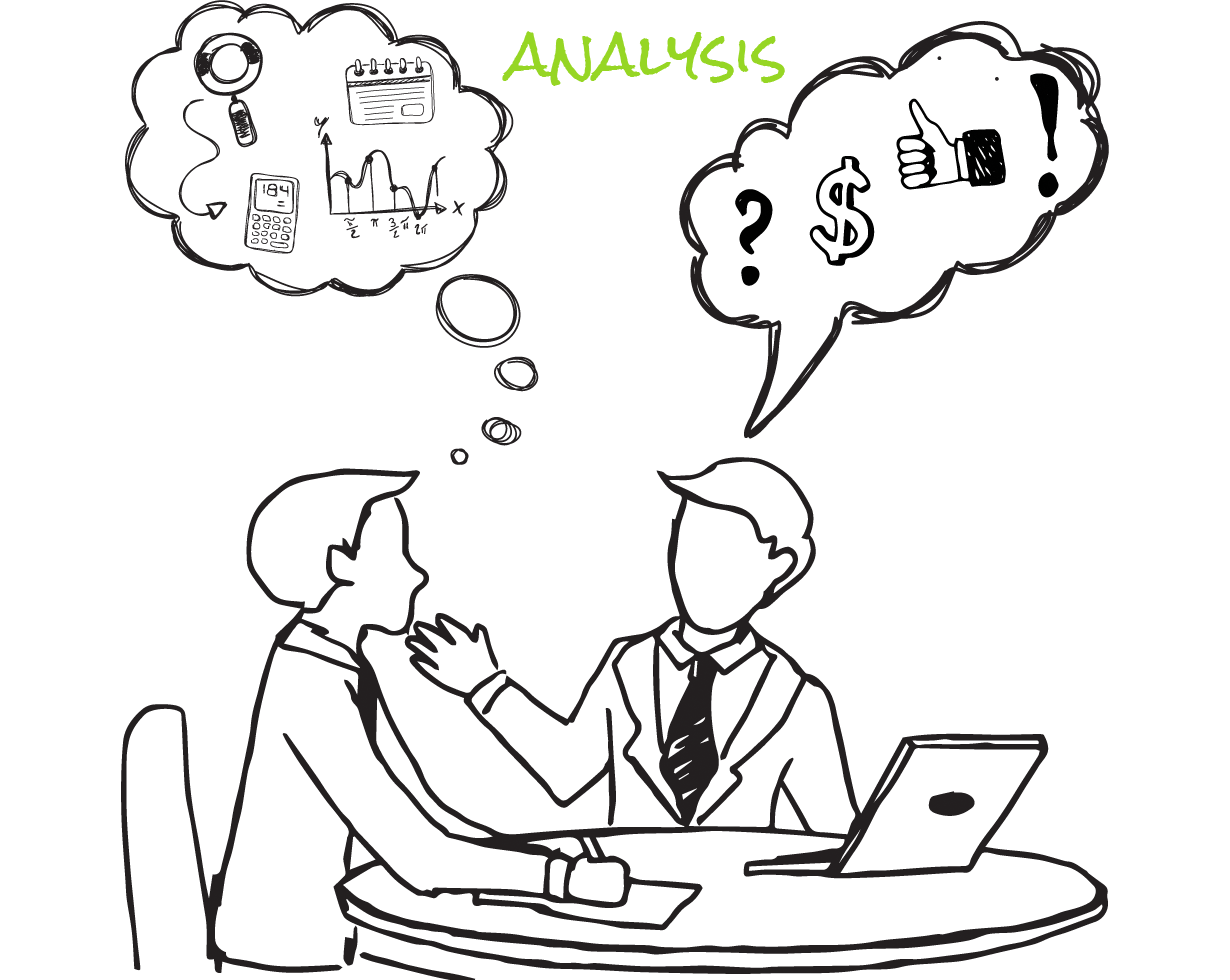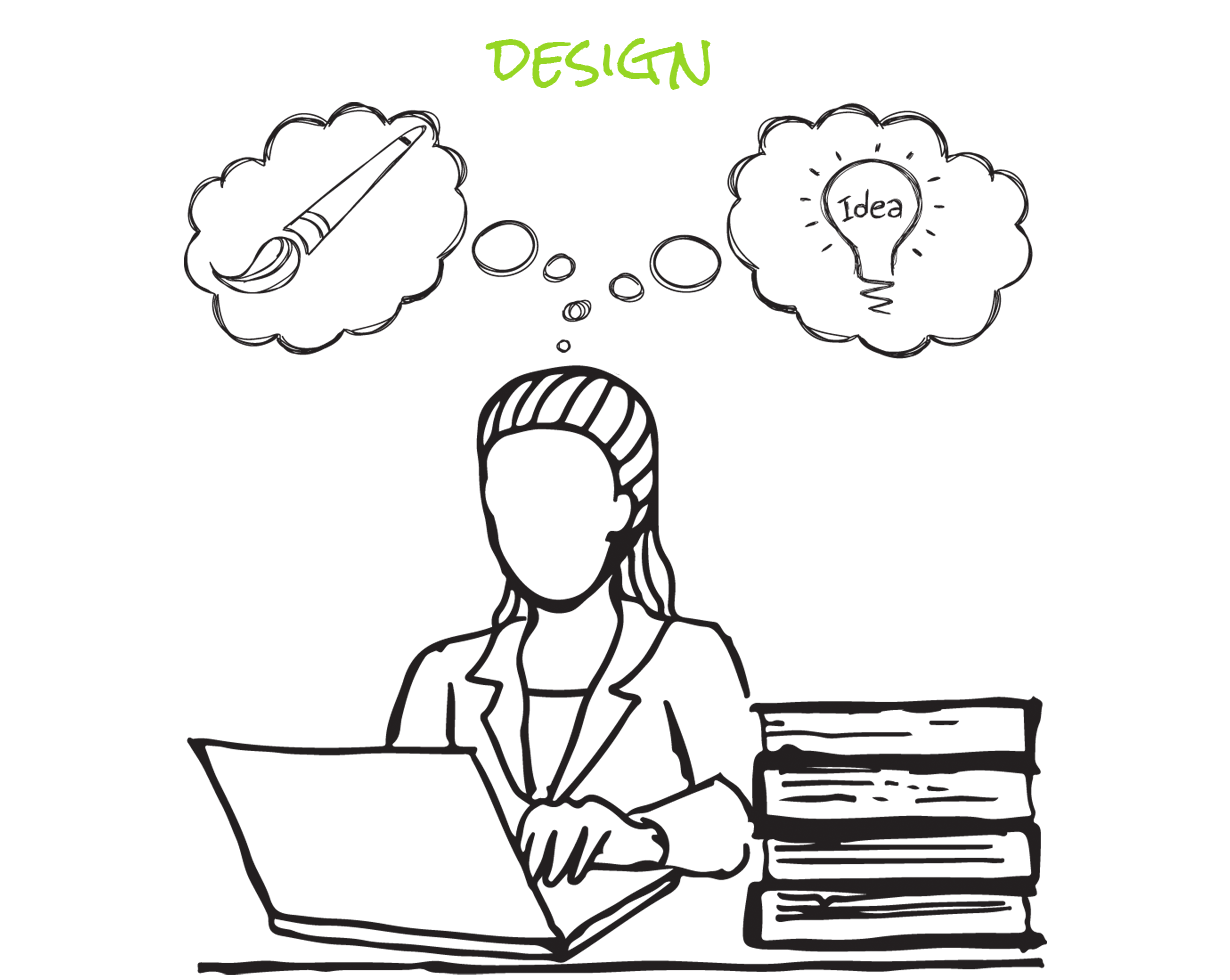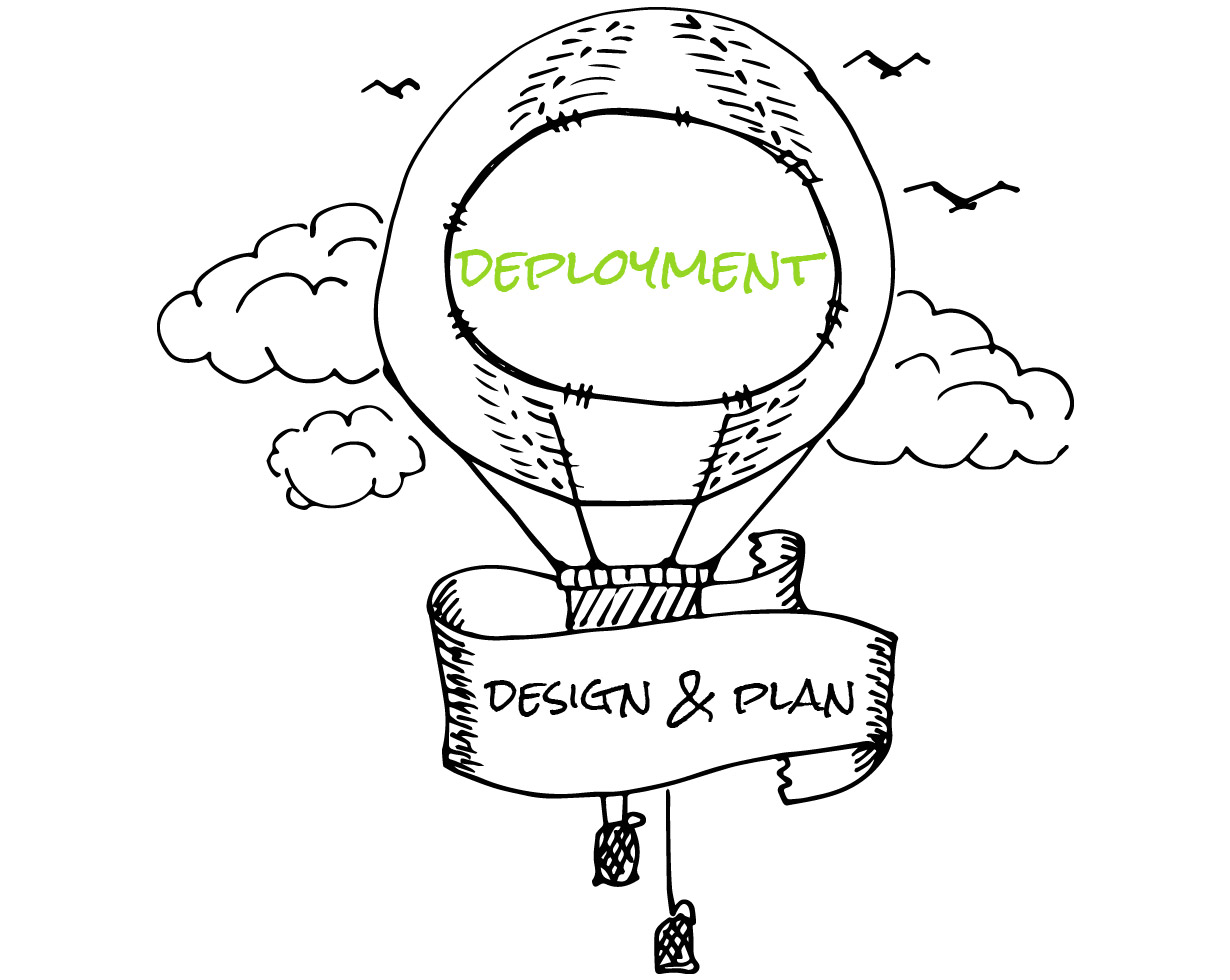PROCESS
Design is a Process… It’s an intimate collaboration between Designers and Clients
– Henry Dreyfuss
ANALYSIS
Step One
The first step is always about information gathering by listening very carefully to the client in order to understand his or her needs in order to determine exactly what they need.

01.
Information
The most crucial part of the whole process is information gathering. We listen carefully to the client and learn as much information as possible about their business.
02.
Purpose
We ask ourselves what is the purpose? What is the client trying to accomplish?
03.
Target
We then determine who exactly should we focus our energy on, Who is our target audience in order to be more effective and yield better results.
04.
Goals
We then analyse what goals does the client have? What milestones can we achieve ? In what time frame ?
PLANNING
Step Two
In step two we determine how we are going to proceed with the tasks at hand and analyse how to achieve them.

01.
Technologies
At this point we determine which tools and technologies would best serve the goal we are trying to achieve.
02.
Timeframe
We also determine the time frame for the project to be completed on time and on budget.
03.
Budget
Calculating the cost of a project is both crucial for us and the client in order to start work and plan a budget.
04.
Assignments
We then break down the tasks at hand and assign them to the corresponding members of our team.
DESIGN
Step Three
At this point we start the design process. This stage is where we take into account all the information from the two previous steps and brainstorm the most effective solution for the client.

01.
Research
We research intensively your competition and your industry in order to give you an edge on your competitors.
02.
Conceive
It is at this stage where all the brainstorming happens. Although it might be the most fun part of the process it is also one of the most crucial to achieving success.
03.
Choose
At this point there is the tough task of choosing which of the ideas conceived is the best choice to go with and start designing.
04.
Design
Only after all three points in step 3 of the design process have been completed do we start designing.
DEVELOPMENT
Step Four
It is at this step that the project comes to light, here the project is taking shape and all the parts of the previous steps all falling into place. Our team is now ready to work !

01.
Collect
A very important part of the process is to aquire the right content. Content is key to the success of the project and great content is king!
02.
Edit
Once the content is collected, it then needs to be sorted edited and optimized for maximum efficiency in the implementation phase.
03.
Create
It is crucial that the right medium is created to deliver the content in the most effective manner possible.
04.
Implement
At this stage the marriage of content and tools comes together. It is at this stage when the project comes to light and all the parts are in place.
DEPLOYMENT
Step Five
The final step is where we make our final preparations for every project launch. No detail can be overlooked at this point and every final step is crucial for a successful launch.

01.
Testing
We test a project thoroughly before deployment with all the necessary tools in order to spot any errors that may occur.
02.
Analyse
Just before deployment we analyse our project to confirm it will fulfill it’s purpose and tweak any last minute details before launch.
03.
Deployment
After all the previous steps are followed and all procedures are implemented the project is finally launched !
04.
Monitor
Just because we have deployed a project doesn’t mean we are done. We keep monitoring a project to measure it’s success and fix any bugs that may occur.

